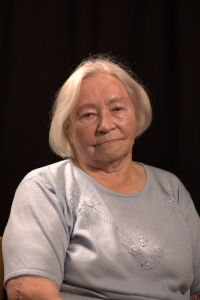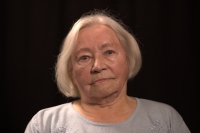All the uranium was shipped to the Soviet Union

Download image
Jindřiška Čechová, née Hošková, was born on 7 November 1927 in Kojetín. In 1942, her father, a communist, was arrested by the Gestapo. She was left alone with her sick mother Pavlína and her three-week-old sister. Her father Jindřich was released after two weeks. From the age of fifteen she worked as a seamstress in Prostějov. She spent her liberation in Kojetín. She witnessed the violence committed by some Soviet soldiers. After the war, she joined the Communist Party of Czechoslovakia (KSČ) and began working at the local party secretariat. In 1946, she went to the border area near Jáchymov to look after the cattle of the expelled Germans. Later she cooked for the local military garrison. In 1947 she started working as a secretary in the mines in Jáchymov. Subsequently, she worked there as an accountant for foreign trade. In 1950 she witnessed a planned uprising of some of the prisoners. In 1951 she married Josef Čech and they had a daughter. In the same year, her husband, who was working as the head of one of the camps, was arrested and charged with treason. After six months he was released. In 1953, Čech’s family moved permanently to Brno. She worked in various positions at the post office until their retirement. In 2023 she was living in Brno.


